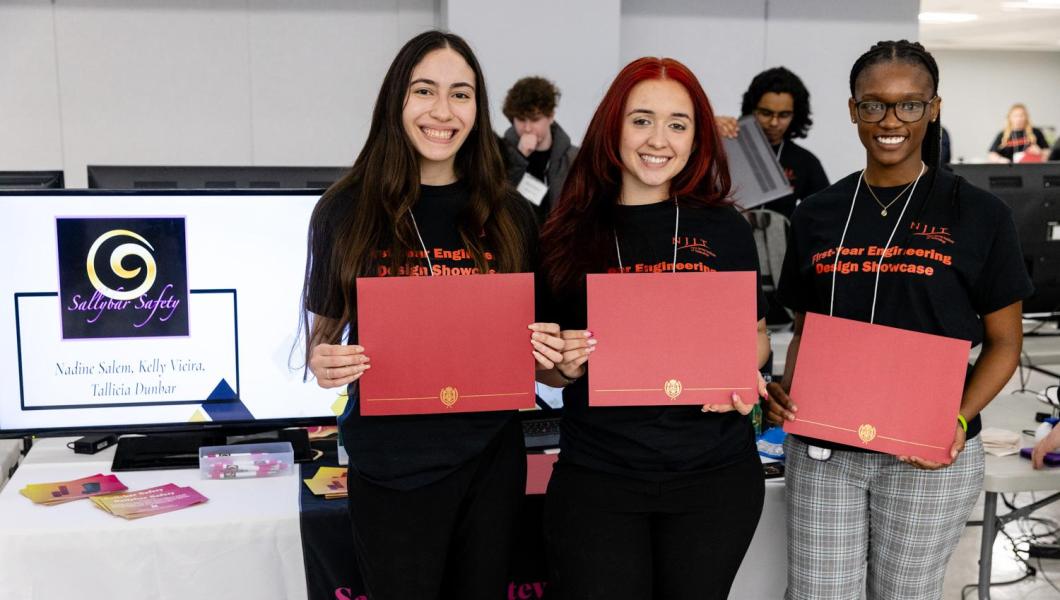Solid Mechanics Expert Wins Coveted 'Young Investigator' Award

NJIT Associate Professor of Mechanical and Industrial Engineering Shawn Chester won the coveted Thomas J.R. Hughes Young Investigator Award from the American Society of Mechanical Engineers (ASME), which recognizes special achievement in applied mechanics for researchers under the age of 41. Chester, an esteemed faculty member of the Department of Mechanical and Industrial Engineering, is being recognized for outstanding research contributions to the mechanics of soft materials that are becoming part of the core knowledge of the field and are having a significant impact on its development.
The award, established in 1998, includes a medal, a certificate and an honorarium of $1,000. This year, Chester and Nanshu Lu, an associate professor of aerospace engineering and engineering mechanics at the University of Texas at Austin, will be honored at the AMD Honors and Awards Banquet during the 2022 ASME International Mechanical Engineering Congress and Exposition in early 2022. Lu is being recognized for contributions to the development of the mechanics, manufacturing methods and implementation of bio-conformable electronics for mobile health and human-machine interaction.
“I’m happy to win the award,” said Chester. “When I look at past award winners, this is a list of important people. It’s a list you want to be on. This means that I’m on a pretty good trajectory in the field of solid mechanics.”
“Shawn Chester has improved the quality of research at NJIT by the example he sets. He’s increased the profile of the department,” said Professor and Chair of the Department of Mechanical and Industrial Engineering I. Joga Rao. “His teaching is excellent. He’s helped update and modernize a number of classes and has been a mentor to our faculty and students.”
Chester, who is currently on sabbatical, teaches classes on engineering materials and processes and the finite element method, a computational and numeric method to solve differential equations that arise in engineering and mathematical modeling.
"When I look at past award winners, this is a list of important people. It’s a list you want to be on."
In 2015, Chester won a National Science Foundation grant to research the “multiphysics” of smart gels, jelly-like polymers under development as sensor-driven sealants and fluid valve controls in applications such as drug delivery, biomedical sensing, tissue engineering and hydraulic fracturing. He tested the materials’ behavior under a wide range of conditions to see how they expand, conduct heat and diffuse liquids.
In 2018, Chester won a prestigious National Science Foundation CAREER grant to research the combined effect of chemical reactions and mechanical deformation on the degradation in polymers. For example, knowledge of the degradation evolution has a direct impact on polymeric medical implants that may be used for repairing broken bones. Such information allows the polymeric implant to provide adequate support and degrade commensurately with healing, finally absorbing into the body.
“I care about the behavior of solid materials,” said Chester. “Any old solid, if you push on it, how strong is it, how much does it deform. In some ways, the field is ancient and old-fashioned.”
Nothing about Chester’s work seems old fashioned. His published academic papers include custom-written finite element software code, and those papers are some of the most cited recent papers in the field of solid mechanics. The subject field is esoteric and the community of solid mechanics is relatively small, but the research is tremendously useful in the real world.
“If, for example, you crash your car, is the crumple zone going to save me or am I going to fly out the window? The software people use to see what happens is often a finite-element-based software,” said Chester. “The papers I think have enabled many others to go about their business and solve their problems. And I’ve written code to allow others to do their work. Those two combined are probably what set me up for this award.”
For all Chester’s valuable research in a short career so far, he is most proud of his students. He’s taught and mentored students who went on to PhD and postdoctoral programs at Georgia Tech, Cornell and Notre Dame.

